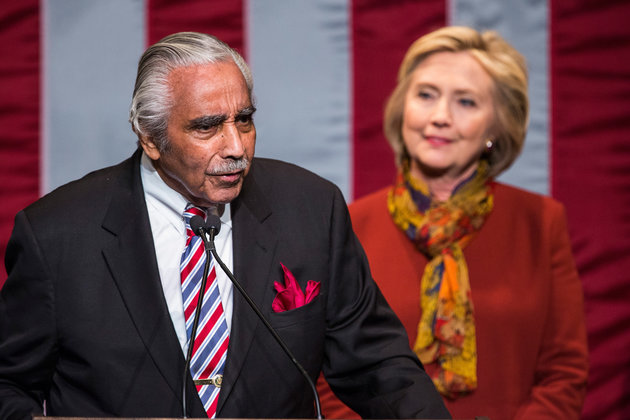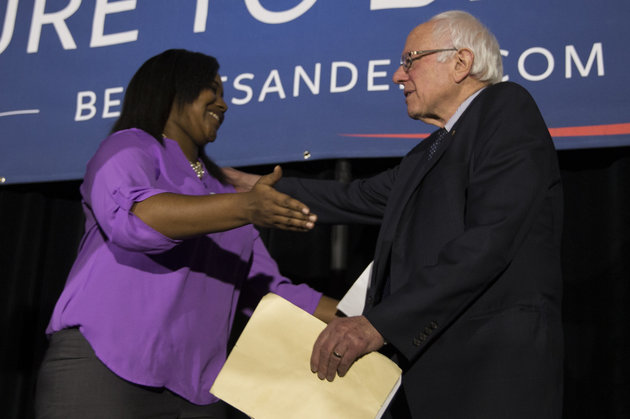NEW YORK (Reuters) - U.S. Democratic presidential candidate Hillary Clinton courted the critical black vote on Tuesday as she met with civil rights leaders in New York and promised in a speech to tackle "very real barriers" confronting African-Americans.
Clinton is seeking to maintain her lead among black voters over U.S. Senator Bernie Sanders of Vermont, her rival for the Democratic nomination for the Nov. 8 election to succeed Democrat Barack Obama, the first black U.S. president.

The Clinton campaign said last week: "It will be very difficult, if not impossible, for a Democrat to win the nomination without strong levels of support among African-American and Hispanic voters."
Clinton's status as the Democratic front-runner was jolted this month when the former secretary of state beat Sanders by less than a percentage point in Iowa's caucuses and lost to him by more than 20 points in the New Hampshire primary. More than 90 percent of people in those states are white.
Clinton met for more than two hours on Tuesday with a half-dozen civil rights leaders at the New York headquarters of the National Urban League.
"I thought that the secretary demonstrated an ease and familiarity with many of the issues we discussed this morning," National Urban League President Marc Morial said afterward.
The Rev. Al Sharpton joked with Clinton in the corridors afterward, suggesting to reporters he had told her which candidate he would endorse.
"My lips are sealed!" Clinton, who did not take any media questions, replied with a smile.
At a news conference later, Sharpton said Clinton was "candid and open," but he added he had yet to decide who to support and that no candidate should take the support of black voters for granted. "We are not a monolithic people," he said.
Clinton's campaign team has argued that Sanders' growing support among Democrats will likely falter as voting for a party nominee moves to more racially diverse states in the coming weeks.
Both Clinton and her husband, former President Bill Clinton, have traditionally had solid support from blacks, a key component of the Democratic electorate.
Opinion polls show Clinton with a strong lead over Sanders in South Carolina, where blacks are likely to make up more than half the voters in the state's Democratic primary on Feb. 27.

Sanders has said Clinton's polling lead among blacks is partly a result of her being more famous than he is. He believes many non-white voters will be drawn to his message of fighting economic inequality as they get to know him.
He is scheduled to meet with civil rights leaders in Washington on Thursday.
SPEECH IN HARLEM
Later on Tuesday, Clinton, a former U.S. senator from New York, gave a speech in the historically black New York City neighborhood of Harlem on breaking down the barriers that black families face. She was joined onstage before her remarks by New York Democratic Governor Andrew Cuomo, New York City Mayor Bill de Blasio and Eric Holder, the first black U.S. attorney general.
"There are still very real barriers holding back African-Americans from fully participating in our economy and our society," Clinton said, citing disparities between blacks and whites in earnings, health and criminal sentencing.
She said that if elected, she would spend $2 billion to encourage public school districts with a high number of troubled students to hire social workers and other experts to help young people before they get entangled in the criminal justice system.
Sanders, who frequently decries the country's high incarceration rate, also met with Sharpton earlier this month, and was endorsed by Benjamin Jealous, former president of the National Association for the Advancement of Colored People, who said he could not support Clinton in part because of her support of the death penalty.
Clinton was endorsed last week by the Congressional Black Caucus Political Action Committee, which said Clinton had a long history of working on issues that affect black Americans.
(Reporting by Jonathan Allen; Editing by Frances Kerry and Peter Cooney)


